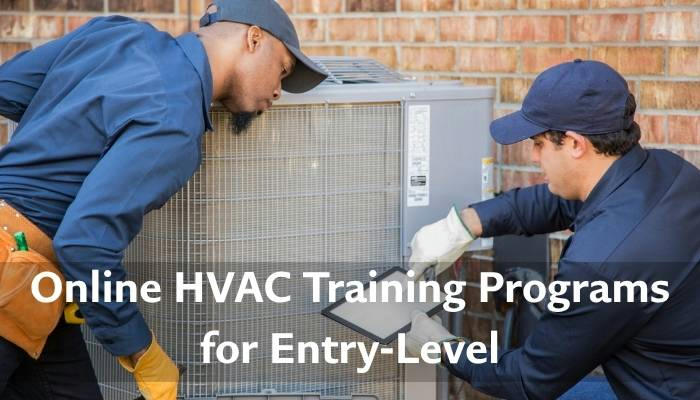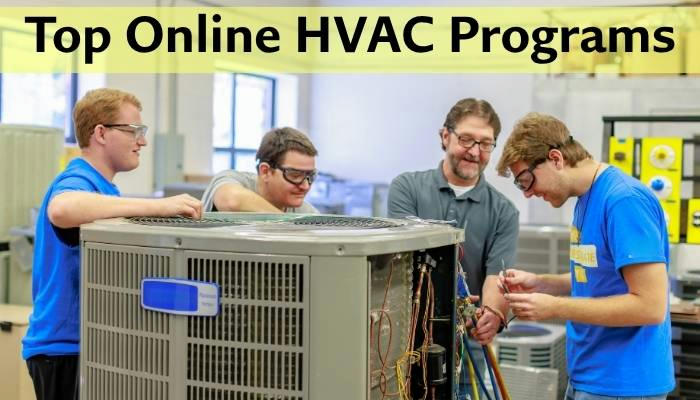Best Online HVAC Training Programs for Entry-Level
Online HVAC training provides flexible pathways into a field projected to grow 15% through 2030. After evaluating 25+ programs, we've identified the most effective online options that prepare beginners for industry certifications and immediate employment. This guide focuses on curriculum quality, certification alignment, and job placement outcomes.

Why Online HVAC Training Works in 2025
Accelerated Learning Advantages
• Self-paced mastery: Complete modules during off-hours
• Virtual simulations: Interactive refrigeration cycle trainers
• Remote mentoring: Direct access to HVAC instructors
• Cost efficiency: 35-50% less than in-person alternatives
• Regional adaptability: Learn climate-specific technologies
Top 5 Online Programs Compared

| Program | Duration | EPA Section 608 Prep | Hands-On Kit | Job Placement | Cost |
|---|---|---|---|---|---|
| HVAC Technical Institute | 6-9 mos | Type I-IV | Full tool set | 88% | $3,995 |
| Refrigeration School | 4-7 mos | Universal | Digital gauges | 92% | $4,250 |
| Penn Foster Career School | Self-paced | Type II/III | Basic meters | 76% | $989-$1,299 |
| Ashworth College | 5-8 mos | Core + Type I | Diagnostic kit | 81% | $1,299 |
| UEI Online | 7-10 mos | Universal | Advanced manifold | 85% | $4,999 |
Program Deep Dive: Essential Features
Core Curriculum Components
Thermodynamics principles
• Heat transfer calculations
• Pressure-enthalpy diagrams
• Refrigerant phase changes
Electrical systems mastery
• Circuit diagram interpretation
• Compressor motor configurations
• Control wiring troubleshooting
EPA 608 Certification prep
• Type I (small appliances)
• Type II (high-pressure systems)
• Type III (low-pressure systems)
• Universal certification options
Virtual Learning Innovations
• 3D system disassembly modules
• Augmented reality diagnostics
• Live troubleshooting sessions
• Cloud-based load calculation software
Skills Development Pathway
Foundational Skills (Weeks 1-4)
• HVAC/R safety protocols
• Basic tool identification
• Electrical multimeter operation
• Refrigerant handling basics
Intermediate Skills (Weeks 5-12)
• System evacuation procedures
• Leak detection techniques
• Airflow measurement methods
• Thermostat wiring configurations
Advanced Skills (Weeks 13+)
• Heat pump defrost controls
• VRF system diagnostics
• Building automation interfaces
• Energy audit protocols
Equipment You'll Need to Practice
Essential Starter Kit ($300-$600 Value)
| Tool | Purpose | Pro Tip |
|---|---|---|
| Digital multimeter | Circuit testing | Auto-ranging models preferred |
| Manifold gauge set | Pressure readings | 4-port with hoses included |
| Leak detector | Refrigerant sensing | Heated diode type |
| Vacuum pump | System dehydration | 6+ CFM capacity |
| Flaring tool kit | Line set fabrication | Imperial and metric |
Career Launch Strategy
Certification Roadmap
EPA Section 608 (required)
HVAC Excellence Certification
NATE Core + Specialty
Manufacturer Certifications (Mitsubishi/Daikin)
Application Timeline
| Phase | Duration | Action Items |
|---|---|---|
| Pre-Training | 2-3 weeks | Research programs, obtain tools |
| Foundation | 4 weeks | Complete EPA prep, safety modules |
| Skill Building | 8 weeks | Practice diagnostics, lab reports |
| Certification | 2-4 weeks | Schedule exams, mock tests |
| Job Search | Concurrent | Build portfolio during training |
Industry Voices: What Employers Want
"Online candidates stand out when they supplement training with manufacturer courses. Focus on heat pump certifications – they're mandatory in half of states now."
– L. Rodriguez, Hiring Manager (Climate Control Inc.)
"Demonstrate troubleshooting methodology in interviews. We test every applicant on reading wiring diagrams under time pressure."
– T. Williams, Service Manager (Summit HVAC)
Avoiding Common Pitfalls
Verification: Ensure program meets your state's licensing requirements
Tool quality: Budget for industrial-grade equipment from week one
Specialization: Select programs emphasizing local climate technologies
Networking: Join ACCA virtual events during training
Documentation: Log every practice session for your skills portfolio
Quality online HVAC training delivers a direct route into a $50,000+ entry-level career. Prioritize programs with comprehensive tool kits and certification bundles. Supplement virtual learning with weekend hands-on practice at community workshops. The most successful graduates complete their EPA 608 certification before program completion and target specialized roles in high-demand sectors like commercial refrigeration and building automation systems.
